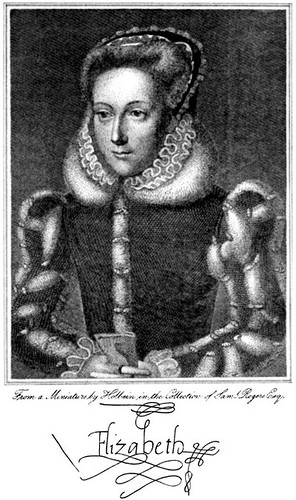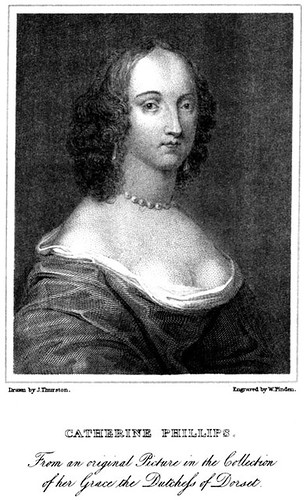
QUEEN ELIZABETH.
105
[BORN 1533. DIED 1603.]
HUME—MACAULAY.
From WOMEN OF HISTORY:
SELECTED FROM THE WRITINGS OF STANDARD AUTHORS.
BY THE EDITOR OF "MEN OF HISTORY."
“Biography is the most universally pleasant and universally profitable of all reading."
EDINBURGH: W. P. NIMMO, HAY, & MITCHELL. 1890.
MORRISON AND GIBB, PRINTERS, EDINBURGH.
[Public Domain]
HERE are few great persons in history who have been more exposed to the calumny of enemies and the adulation of friends than Queen Elizabeth, and yet there scarcely is any whose reputation has been more certainly determined by the unanimous consent of posterity. The unusual length of her administration, and the strong features of her character, were able to overcome all prejudices; and, obliging her detractors to abate much of their invectives, and her admirers somewhat of their panegyrics, have at last, in spite of political factions, and, what is more, of religious animosities, produced a uniform judgment in regard to her conduct.
Her vigour, her constancy, her magnanimity, her penetration, vigilance, and address, are allowed to merit the highest praises, and appear not to have been surpassed by any person that ever filled a throne. A conduct less rigorous, less imperious, more sincere, more indulgent to her people, would have been requisite to form a perfect character. By the force of her mind she controlled all her more active and stronger qualities, and prevented them from running into excess. Her heroism was exempt from temerity, her frugality from avarice, her friendship from partiality, her enterprise from turbulency and a vain ambition: she 106guarded not herself with equal care or equal success from lesser infirmities—the rivalship of beauty, the desire of admiration, the jealousy of love, and the sallies of anger.
Her singular talents for government were founded equally on her temper and on her capacity. Endowed with a great command over herself, she soon obtained an uncontrolled ascendant over her people; and while she merited all their esteem by her real virtues, she also engaged their affection by her pretended ones. Few sovereigns of England succeeded to the throne in more difficult circumstances, and none ever conducted the government with such uniform success and felicity. Though unacquainted with the practice of toleration, the true secret for managing religious factions, she preserved her people, by her superior prudence, from those confusions in which religious controversy had involved all the neighbouring nations; and though her enemies were the most powerful princes of Europe,—the most active, the most enterprising, the least scrupulous,—she was able, by her vigour, to make deep impressions on their states. Her own greatness remained, meanwhile, untouched and unimpaired.
The wise ministers and brave warriors who flourished under her reign, share the praise of her success; but instead of lessening the applause due to her, they make a great addition to it. They owed, all of them, their advancement to her choice; they were supported by her constancy; and, with all their abilities, they were never able to acquire any undue ascendant over her. In her family, in her court, in her kingdom, she remained equally mistress: the force of the tender passions was great over her, but the force of her mind was still superior; and the combat which the victory visibly cost her, serves only to display the firmness of her resolution and the loftiness of her ambitious sentiments.107
The fame of this princess, though it has surmounted the prejudices both of faction and of bigotry, yet lies still exposed to another prejudice, which is more durable, because more natural, and which, according to the different views in which we survey her, is capable either of exalting beyond measure, or diminishing the lustre of her character. This prejudice is founded on the consideration of her sex. When we contemplate her as a woman, we are apt to be struck with the highest admiration of her great qualities and extensive capacity; but we are also apt to require some more softness of disposition, some greater lenity of temper, some of those amiable weaknesses by which her sex is distinguished. But the true method of estimating her merit is to lay aside all these considerations, and to consider her merely as a rational being placed in authority, and entrusted with the government of mankind. We may find it difficult to reconcile our fancy to her as a wife or a mistress; but her qualities as a sovereign, though with some considerable exceptions, are the object of undisputed applause and approbation.
i001
